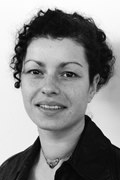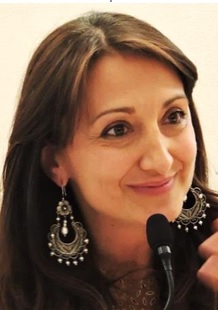Studiare
In questa sezione è possibile reperire le informazioni riguardanti l'organizzazione pratica del corso, lo svolgimento delle attività didattiche, le opportunità formative e i contatti utili durante tutto il percorso di studi, fino al conseguimento del titolo finale.
Calendario accademico
Il calendario accademico riporta le scadenze, gli adempimenti e i periodi rilevanti per la componente studentesca, personale docente e personale dell'Università. Sono inoltre indicate le festività e le chiusure ufficiali dell'Ateneo.
L’anno accademico inizia il 1° ottobre e termina il 30 settembre dell'anno successivo.
Calendario didattico
Il calendario didattico indica i periodi di svolgimento delle attività formative, di sessioni d'esami, di laurea e di chiusura per le festività.
| Periodo | Dal | Al |
|---|---|---|
| Sem. 1A | 24-set-2018 | 10-nov-2018 |
| Sem. 1B | 19-nov-2018 | 12-gen-2019 |
| Sem. 2A | 18-feb-2019 | 30-mar-2019 |
| Sem. 2B | 8-apr-2019 | 1-giu-2019 |
| Sessione | Dal | Al |
|---|---|---|
| Sessione Invernale | 14-gen-2019 | 16-feb-2019 |
| Sessione Estiva (Gli esami sono sospesi durante la Sessione di laurea) | 3-giu-2019 | 27-lug-2019 |
| Sessione Autunnale | 26-ago-2019 | 21-set-2019 |
| Sessione | Dal | Al |
|---|---|---|
| Sessione Estiva | 8-lug-2019 | 13-lug-2019 |
| Sessione Autunnale | 4-nov-2019 | 9-nov-2019 |
| Sessione Invernale | 30-mar-2020 | 4-apr-2020 |
| Periodo | Dal | Al |
|---|---|---|
| Festa di Ognissanti | 1-nov-2018 | 1-nov-2018 |
| Festa dell’Immacolata | 8-dic-2018 | 8-dic-2018 |
| Vacanze di Natale | 22-dic-2018 | 6-gen-2019 |
| Vacanze di Pasqua | 19-apr-2019 | 23-apr-2019 |
| Festa della liberazione | 25-apr-2019 | 25-apr-2019 |
| Festa del lavoro | 1-mag-2019 | 1-mag-2019 |
| Festa del Santo Patrono - S. Zeno | 21-mag-2019 | 21-mag-2019 |
| Vacanze Estive | 12-ago-2019 | 17-ago-2019 |
Calendario esami
Gli appelli d'esame sono gestiti dalla Unità Operativa Segreteria Corsi di Studio Scienze Umane.
Per consultazione e iscrizione agli appelli d'esame visita il sistema ESSE3.
Per problemi inerenti allo smarrimento della password di accesso ai servizi on-line si prega di rivolgersi al supporto informatico della Scuola o al servizio recupero credenziali
Per dubbi o domande leggi le risposte alle domande più frequenti F.A.Q. Iscrizione Esami
Docenti
 giorgia.decarli@univr.it
giorgia.decarli@univr.it
 licia.landi@univr.it
licia.landi@univr.it
 domenico.lipari@univr.it; domenico.lipari@uniroma1.it
domenico.lipari@univr.it; domenico.lipari@uniroma1.it
 angeloluigi.sangalli@univr.it
angeloluigi.sangalli@univr.it
Piano Didattico
Il piano didattico è l'elenco degli insegnamenti e delle altre attività formative che devono essere sostenute nel corso della propria carriera universitaria.
Selezionare il piano didattico in base all'anno accademico di iscrizione.
1° Anno
| Insegnamenti | Crediti | TAF | SSD |
|---|
2° Anno Attivato nell'A.A. 2019/2020
| Insegnamenti | Crediti | TAF | SSD |
|---|
3° Anno Attivato nell'A.A. 2020/2021
| Insegnamenti | Crediti | TAF | SSD |
|---|
| Insegnamenti | Crediti | TAF | SSD |
|---|
| Insegnamenti | Crediti | TAF | SSD |
|---|
| Insegnamenti | Crediti | TAF | SSD |
|---|
| Insegnamenti | Crediti | TAF | SSD |
|---|
Legenda | Tipo Attività Formativa (TAF)
TAF (Tipologia Attività Formativa) Tutti gli insegnamenti e le attività sono classificate in diversi tipi di attività formativa, indicati da una lettera.
Psicologia dinamica delle motivazioni (2020/2021)
Codice insegnamento
4S00762
Docente
Coordinatore
Crediti
6
Lingua di erogazione
Italiano
Settore Scientifico Disciplinare (SSD)
M-PSI/07 - PSICOLOGIA DINAMICA
Periodo
Sem. 2A dal 15-feb-2021 al 1-apr-2021.
Obiettivi formativi
1) Conoscere e comprendere le teorie psicologiche che rendono contro dei fondamentali processi di funzionamento e adattamento del singolo all’ambiente materiale e sociale. 2) Conoscere e comprendere le teorie relative ai meccanismi di funzionamento psicologico delle persone al lavoro e nelle organizzazioni, comprese le loro motivazioni, la soddisfazione e il benessere. 3) Applicare le teorie sul funzionamento del singolo, dei gruppi e delle organizzazioni alla lettura e all’analisi dei fenomeni di apprendimento e di cambiamento personale e sociale. OBIETTIVI FORMATIVI SPECIFICI: Sviluppare nello studente la conoscenza e comprensione delle teorie della motivazione e del sistema motivazionale degli affetti, quali funzioni che regolano il comportamento umano. Sviluppare nello studente la capacità di individuare i fattori motivazionali che guidano il comportamento dei singoli tenendo conto del contesto (relazionale, gruppale, organizzativo) nel quale le motivazioni si sviluppano e i comportamenti vengono agiti. Aiutare lo studente a delineare possibili strategie di promozione del benessere e della motivazione nei diversi contesti di apprendimento e non.
Programma
L’insegnamento si pone i seguenti obiettivi formativi specifici:
1) sviluppare nello studente conoscenza e comprensione delle teorie della motivazione e del sistema motivazionale degli affetti, quali funzioni che regolano il comportamento umano.
2) sviluppare nello studente la capacità di individuare i fattori motivazionali che guidano il comportamento dei singoli, tenendo conto del contesto (relazionale, gruppale, organizzativo) nel quale le motivazioni si sviluppano e i comportamenti vengono agiti.
3) aiutare lo studente a delineare possibili strategie di promozione del benessere e della motivazione nei diversi contesti di apprendimento e non.
I principali argomenti affrontati durante le lezioni saranno:
• Psicologia dinamica: dai primi concetti alle teorie più recenti sui sistemi motivazionali.
• La motivazione tra biologia e cultura.
• I bisogni e le teorie dei bisogni.
• Obiettivi, percezioni di competenza, decisioni e scelte.
• Motivazione estrinseca, motivazione intrinseca e autonomia della motivazione.
• Le emozioni e la motivazione: due concetti interdipendenti.
• Benessere soggettivo e vissuti emotivi positivi: congruenza tra motivi e obiettivi.
• Esperienza soggettiva, espressione delle emozioni e tendenze all’azione.
• Emozioni e memoria: come le emozioni influiscono sulle scelte.
• La regolazione delle emozioni.
• La condivisione sociale delle emozioni: perché le persone tendono a condividere le proprie emozioni.
• Valutare la motivazione.
Testi per l’esame per studenti frequentanti e non frequentanti:
1. Amadei G., Cavanna D., Zavattini G.C. Psicologia dinamica, Il Mulino, Bologna, 2015 (chapters 1, 3, 4, 6).
2. Moè A., La motivazione. Teorie e processi - Nuova edizione, Il Mulino, Bologna, 2020.
3. Bellelli G., Le ragioni del cuore. Psicologia delle emozioni, Il Mulino, Bologna, 2008.
| Autore | Titolo | Casa editrice | Anno | ISBN | Note |
|---|---|---|---|---|---|
| Moè A. | La motivazione. Teorie e processi - Nuova edizione | Il Mulino | 2020 | 978-88-15-29026-7 | |
| Bellelli G. | Le ragioni del cuore. Psicologia delle emozioni | Il mulino | 2008 | 9788815127778 | |
| Amadei G., Cavanna D., Zavattini C.G. | Psicologia dinamica | Il Mulino | 2015 | 9788815245670 |
Modalità d'esame
Esame scritto volto ad accertare la conoscenza degli argomenti riportati nei testi (o parti di essi) in programma. Il voto è espresso in trentesimi. La modalità di esame è la stessa per frequentanti e non frequentanti. Per gli studenti che hanno frequentato il corso negli a.a. precedenti al 2020-2021 è possibile sostenere l'esame con il programma relativo al loro anno di corso. Le indicazioni sulla modalità di esame riportate sopra potranno essere modificate (anche ricorrendo alla forma orale) qualora intervenisse l’esigenza di adeguarsi a specifiche norme di sicurezza.
N.B.
Gli esami di Psicologia Dinamica delle Motivazioni e Psicologia Clinica sono previsti in alternativa al terzo anno. È possibile (e consigliabile, soprattutto per gli studenti che prevedono di accedere ad un Corso di Studi Magistrale in ambito psicologico) sostenere entrambi gli esami inserendo uno dei due nel proprio piano di studi come esame a scelta (Crediti D), operazione che può essere fatta direttamente dallo studente entrando in essetre. La raccomandazione è però quella di sostenere entrambi gli esami al terzo anno. Infatti, inserendo uno dei due esami nei crediti D il sistema consente di frequentare il corso e sostenere tale esame anche in un anno antecedente al terzo. Tuttavia, se lo studente opta per questa soluzione (cioè anticipare l’esame, ad esempio, di Psicologia Dinamica delle Motivazioni in un anno precedente al terzo) deve essere consapevole che qualora, per una eventualità (rara ma non impossibile), l’altro corso (nell’esempio quello di Psicologia Clinica) dovesse temporaneamente “tacere” quando lo studente arriva al terzo anno si troverebbe nell’impossibilità di laurearsi in quell’anno accademico.
Tipologia di Attività formativa D e F
Insegnamenti non ancora inseriti
Prospettive
Avvisi degli insegnamenti e del corso di studio
Per la comunità studentesca
Se sei già iscritta/o a un corso di studio, puoi consultare tutti gli avvisi relativi al tuo corso di studi nella tua area riservata MyUnivr.
In questo portale potrai visualizzare informazioni, risorse e servizi utili che riguardano la tua carriera universitaria (libretto online, gestione della carriera Esse3, corsi e-learning, email istituzionale, modulistica di segreteria, procedure amministrative, ecc.).
Entra in MyUnivr con le tue credenziali GIA: solo così potrai ricevere notifica di tutti gli avvisi dei tuoi docenti e della tua segreteria via mail e a breve anche tramite l'app Univr.
Gestione carriere
Esercitazioni Linguistiche CLA
Tutorato per gli studenti
Tutti i docenti del Corso di Studio possono fornire una forma di tutorato volta ad orientare e assistere gli studenti lungo tutto il corso degli studi.
Le matricole, gli studenti che si approcciano al tirocinio, gli studenti in uscita e tutti gli studenti che manifestano difficoltà nel loro percorso di studi possono contattare i docenti indicati come tutor del corso di laurea in Scienze psicologiche per la formazione:
- prof. Riccardo Sartori (Referente);
- prof. ssa Daniela Raccanello;
- prof. Michele Scandola.
Nel quadro del programma di TUTORATO, il Dipartimento di Scienze Umane ha inoltre deciso di utilizzare l’esperienza di alcuni iscritti al Corso di Laurea Magistrale in Psicologia per la formazione per offrire un supporto che sia il più vicino possibile a chi frequenta il CdS triennale, sulla base della loro diretta esperienza.
Tali Tutor studenteschi forniranno un servizio di orientamento, sia in ingresso (vòlto a favorire un migliore inserimento nei Corsi di Studio, ovviando alle difficoltà e agli ostacoli che il passaggio dalla Scuola Superiore all’Università inevitabilmente comporta), sia in itinere, così da offrire un servizio di sostegno che sappia adeguatamente interpretare e rispondere alle esigenze di formazione e professionalizzazione di chi frequenta il CdS.
Tra i compiti e le attività previste vi sono:
- Supporto ad indagini sugli iscritti al CdS, volte a individuare potenziali criticità nel percorso, in particolare:
- indagine sulle carriere;
- indagine sulla presenza di studenti/esse con esigenze specifiche (ad esempio fuori sede, stranieri, lavoratori/trici, diversamente abili, con figli piccoli);
- Individuazione e realizzazione di possibili interventi di supporto agli studenti/esse che manifestano difficoltà nel percorso, anche online;
- Attività di sportello on-line su appuntamento per l’accompagnamento, aperto a tutta la componente studentesca;
- Avvio del monitoraggio dell’efficacia dell’intervento di tutorato (analisi della situazione iniziale e della situazione post intervento);
- Orientamento in itinere per gli studenti del primo anno.
Il Tutorato è volto ad accompagnare gli studenti nel corso degli studi, a renderli attivamente partecipi del processo formativo e a contribuire al superamento delle difficoltà individuali.
Per l'a.a. 2023-2024 sono stati nominati come Tutor per il CdS in Scienze psicologiche per la formazione, attivi fino al 30 settembre 2024:
Camplone Tommaso - tommaso.camplone@studenti.univr.it
Carrara Veronica - veronica.carrara@studenti.univr.it
Per prenotare un appuntamento è necessario contattare i tutor tramite email, specificando necessità, orari di preferenza e modalità per essere ricontattati.
Guide operative per lo studente
In questa pagina lo studente potrà trovare delle guide operative, utili al completamento del proprio percorso universitario, che vanno ad integrare quanto già indicato nei Regolamenti didattici del CdS.
1- Qui si possono reperire indicazioni in merito ai riconoscimenti di carriera, ai crediti a libera scelta per lo studente e alle certificazioni linguistiche per gli studenti iscritti ai CdS afferenti al Dipartimento di Scienze Umane a partire dalla coorte 2022 (le indicazioni contenute nella Guida entrano in vigore dal 29 marzo 2023 e sono retroattive solo se a favore dello studente);
2 - Qui si possono reperire indicazioni in merito ai riconoscimenti di carriera, ai crediti a libera scelta per lo studente e alle certificazioni linguistiche per gli studenti iscritti ai CdS afferenti al Dipartimento di Scienze Umane a partire dalla coorte 2014 (le indicazioni contenute nella Guida entrano in vigore dal 29 aprile 2020 e sono retroattive solo se a favore dello studente);
3 - Qui si possono reperire indicazioni in merito al conseguimento dei crediti a libera scelta (Crediti D e F) per gli studenti iscritti ai i CdS afferenti al Dipartimento di Scienze Umane fino alla coorte 2013 (le indicazioni contenute nella Guida entrano in vigore dal 23 febbraio 2011 e sono retroattive solo se a favore dello studente).
Documenti
| Titolo | Info File |
|---|---|
|
|
pdf, it, 325 KB, 02/05/23 |
|
|
pdf, it, 212 KB, 02/05/23 |
|
|
pdf, it, 131 KB, 02/05/23 |
Prova Finale
La prova finale (5 CFU) consisterà in un elaborato individuale che testimoni la padronanza di teorie e tecniche relative ad uno o più ambiti del corso di studio. Lo/a studente/ssa può scegliere come Relatore del proprio elaborato di tesi anche un docente che non eroghi insegnamenti nel CdS purché si tratti di un componente del Collegio Didattico e purché lo/a studente/ssa abbia sostenuto almeno un esame nel settore scientifico disciplinare (SSD) di afferenza del docente stesso. In casi adeguatamente motivati, il Collegio può deliberare in deroga a quanto sopra previsto. Lo/a studente/ssa deve seguire, entro i termini stabiliti, la procedura informatica prevista da ESSE3 per comunicare il titolo dell'elaborato e farlo confermare dal docente Relatore. Spetta allo/a studente/ssa verificare di aver acquisito i 175 CFU necessari per accedere alla discussione dell'elaborato finale. La discussione avverrà in presenza del Relatore e di un Docente di riferimento della materia, mentre la proclamazione avverrà tramite altra commissione. Le commissioni sono nominate dal Presidente del Collegio Didattico. Possono far parte della Commissione, in soprannumero e limitatamente alla discussione degli elaborati di cui sono correlatori, anche docenti ed esperti esterni. Il Presidente della commissione è il professore di ruolo di più alto grado accademico. Per la determinazione del voto di laurea la media dei voti d'esame è calcolata tenendo conto di tutte le prove, in qualsiasi ambito del piano di studio individuale siano inserite, che diano luogo a un voto espresso in trentesimi. Tale media è ponderata in base al numero di CFU corrispondenti a ciascuna prova. È compito della Commissione formata da Relatore e Docente di riferimento, ascoltata la presentazione del proprio lavoro di tesi da parte dei/le laureandi/e, formulare un giudizio rispetto al lavoro di tesi, in termini di punteggio, che può essere al massimo di 8 punti. Alla valutazione finale vengono aggiunti:
- 0,5 punti per ogni lode in carriera, fino ad un massimo di 3 punti;
- 1 punto se il/la laureando/a, immatricolato per la prima volta al I anno al sistema universitario nell'a.a. X/X+1 che ha proseguito al II anno nello stesso corso di studio, ha acquisito 40 CFU al primo anno. Si computano solo i CFU acquisiti nell'a.a. X/X+1 dal 01/10/XX al 31/12/XX+1 con esclusione di quelli derivanti da riconoscimento carriera. Non si applica per chi ha fatto una precedente rinuncia agli studi, una sospensione della carriera o se è stato ripetente;
- 1 punto se il/la laureando/a si laurea in corso;
2 punti tramite cui il Collegio Didattico incentiva l’internazionalizzazione a chi abbia conseguito almeno 2 CFU all’estero.
Documenti
| Titolo | Info File |
|---|---|
|
|
pdf, it, 99 KB, 13/10/23 |
|
|
pdf, it, 101 KB, 10/04/24 |
|
|
pdf, it, 296 KB, 28/07/22 |
|
|
pdf, it, 142 KB, 28/07/22 |
|
|
octet-stream, it, 24 KB, 28/07/22 |
Elenco delle proposte di tesi e stage
Stage e Tirocini
Le attività che ci si aspetta il/la tirocinante curriculare in Scienze psicologiche per la formazione svolga presso gli enti che lo/la ospitano riguardano principalmente attività di affiancamento nei seguenti ambiti:
- Formazione, sviluppo, innovazione e gestione delle risorse umane;
- Orientamento scolastico e professionale;
- Ricerca, selezione e valutazione psicologica del personale.
Sono ritenuti ambiti adeguati le diverse agenzie per il lavoro, le agenzie di formazione, le agenzie di orientamento, le società di consulenza e tutti gli enti, le associazioni, le aziende, le imprese e, in generale, le organizzazioni che al loro interno operano attività di ricerca, selezione e valutazione psicologica del personale, attività di formazione, sviluppo, innovazione e gestione delle risorse umane e attività di orientamento scolastico e professionale. Anche enti di ricerca e Università dove si conducono studi e indagini su questi temi sono ambiti ritenuti adeguati.
Lo/la studente/essa sarà seguito/a da un tutor accademico e da un tutor aziendale. Alle attività di tirocinio sono attribuiti 9 CFU (pari a 225 ore).
Il tutor aziendale deve essere un laureato in psicologia anche non iscritto all’albo.
Linee Guida per lo Svolgimento dei Tirocini Curriculari
- Tutte le informazioni in merito agli stage per futuri studenti sono disponibili alla pagina Stage e tirocini.
- Tutte le informazioni in merito agli stage per studenti iscritti sono pubblicate in MyUnivr - come fare per - stage e tirocini.
- Tutte le informazioni in merito agli stage per le aziende sono disponili alla pagina Stage e tirocini per azienze.

 0458028369
0458028369


















